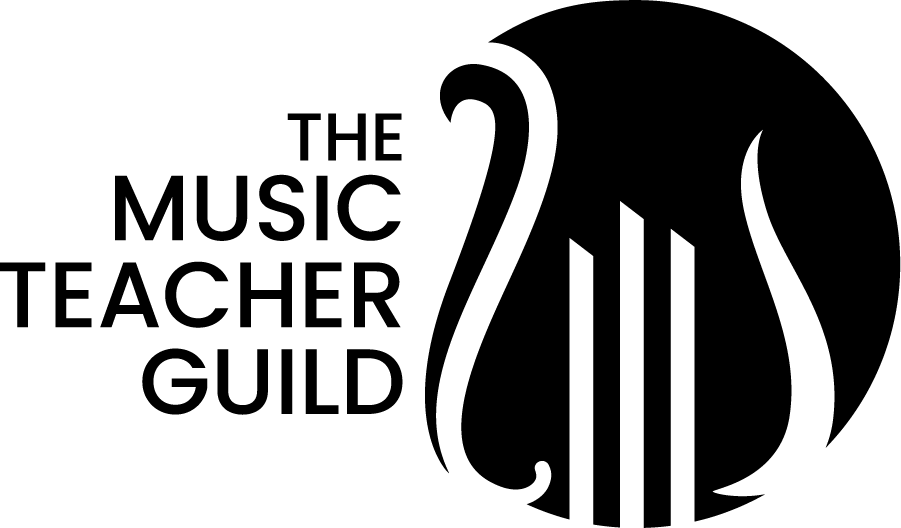Building a Professional Network as a Music Educator: A Step-by-Step Guide
As a music educator, you’re not just teaching the next generation of musicians—you’re part of a thriving community of professionals. The world of music education is constantly evolving, and staying connected with other educators is key to unlocking new opportunities. Whether you’re looking for career advice, collaborative projects, or simply a support system, professional networking is the gateway to expanding your horizons. In this guide, we’ll explore strategies and benefits specifically tailored for music teachers, ensuring that you can build meaningful connections while fostering your own professional growth.
Introduction: Importance of Professional Networking for Music Educators
In the ever-evolving field of music education, professional networking has become an essential tool for success. Music educators are no longer just confined to their classrooms or local communities—they’re part of a global network of teachers, mentors, and collaborators. With the rapid pace of change in education and music technology, staying connected with other professionals allows music teachers to remain at the forefront of their field. Networking not only opens doors to career advancement but also fosters continuous professional growth, helping educators stay inspired and innovative in their teaching methods.
Understanding the Benefits of Professional Networks in Music Education
Professional networking for music educators goes far beyond exchanging business cards or LinkedIn connections. It offers a multitude of benefits that can directly impact both your career and teaching practice. Here’s how professional networks can elevate your role as a music educator:
Career Opportunities: Many job opportunities arise through personal and professional connections rather than traditional job postings. By expanding your network, you increase your chances of learning about open positions, gigs, and new teaching opportunities.
Professional Growth: Staying connected with other music educators provides access to the latest trends, pedagogies, and technologies. From learning about new teaching methodologies to discovering useful resources, your professional network is a treasure trove of knowledge.
Collaboration: Music educators often benefit from collaborating with their peers. Whether it’s developing interdisciplinary projects, organizing joint performances, or exchanging lesson plans, professional networks make these partnerships possible.
Mentorship: One of the most significant advantages of networking is the ability to find mentors. Having access to experienced music educators who can guide you through challenging situations, offer career advice, or share their expertise can be incredibly rewarding.
Networking Strategies for Music Educators
While networking may seem daunting at first, there are several effective strategies music educators can use to build and maintain professional relationships. These strategies will help you make meaningful connections and ensure you’re taking full advantage of networking opportunities.
Attending Conferences and Workshops: Industry events like music education conferences, teacher training seminars, or specialized workshops are excellent places to meet fellow educators. These gatherings provide an ideal setting to discuss the latest industry trends and exchange ideas in person.
Engaging in Online Communities: In today’s digital age, professional networking often starts online. Social media platforms like LinkedIn, Facebook groups, and forums such as Music Teachers Helper allow educators to connect, ask questions, and share resources. Many of these platforms offer specific groups for music teachers, making it easier to find like-minded professionals.
Joining Professional Organizations: Membership in professional organizations, such as the National Association for Music Education (NAfME) or regional music teacher associations, can give you access to exclusive networking opportunities. These groups often host events, offer certification programs, and provide platforms for teachers to connect with peers.
Building Personal Relationships: Effective networking is about building genuine relationships. Rather than focusing on the quantity of your connections, prioritize quality. Personal connections can lead to long-term professional partnerships, collaborative projects, and even friendships that can enhance your career.
How to Get Started with Professional Networking
Building a network from scratch can be intimidating, but starting with clear goals can make the process smoother. Here’s a step-by-step guide to help you begin your networking journey:
Identify Your Networking Goals: Before diving into networking, ask yourself what you hope to achieve. Are you looking for job opportunities? Do you want to collaborate with others on projects? Or are you seeking mentorship? Having clear goals will help guide your efforts.
Start Small: If you’re new to networking, don’t feel pressured to attend large conferences or make dozens of connections overnight. Start small by attending local events or joining online groups where you can engage with just a few people at a time.
Follow Up: After making initial connections, it’s crucial to follow up. Whether it’s a quick email to thank someone for a conversation or a LinkedIn message to continue a discussion, following up shows your interest and helps solidify the relationship.
Overcoming Challenges in Networking
Not all educators find networking easy, especially if you’re introverted or new to the profession. However, there are ways to navigate the potential challenges of professional networking:
Introversion and Networking: If you’re naturally introverted, the idea of approaching new people can feel overwhelming. Focus on one-on-one interactions or smaller group settings rather than large networking events. Virtual networking can also feel less intimidating.
Balancing Time: Music educators often have demanding schedules, leaving little time for networking. Set aside a small amount of time each week to engage in networking activities, whether it's attending a short online webinar or interacting on social media.
Virtual vs. In-Person Networking: Both formats have their advantages. In-person networking often allows for deeper, more personal connections, while virtual networking is more accessible and can be done at any time. Use a combination of both to maximize your opportunities.
Conclusion: Takeaways for Music Teachers
Professional networking can be a powerful tool for advancing your career, staying inspired, and becoming a better music educator. By taking small steps to build meaningful connections and seeking out opportunities to engage with fellow educators, you’ll unlock new pathways to professional growth. Whether through in-person events, online communities, or mentorship, being part of a strong professional network will enrich both your teaching and your career. So go ahead, take the first step—your next big opportunity might just be one connection away!

